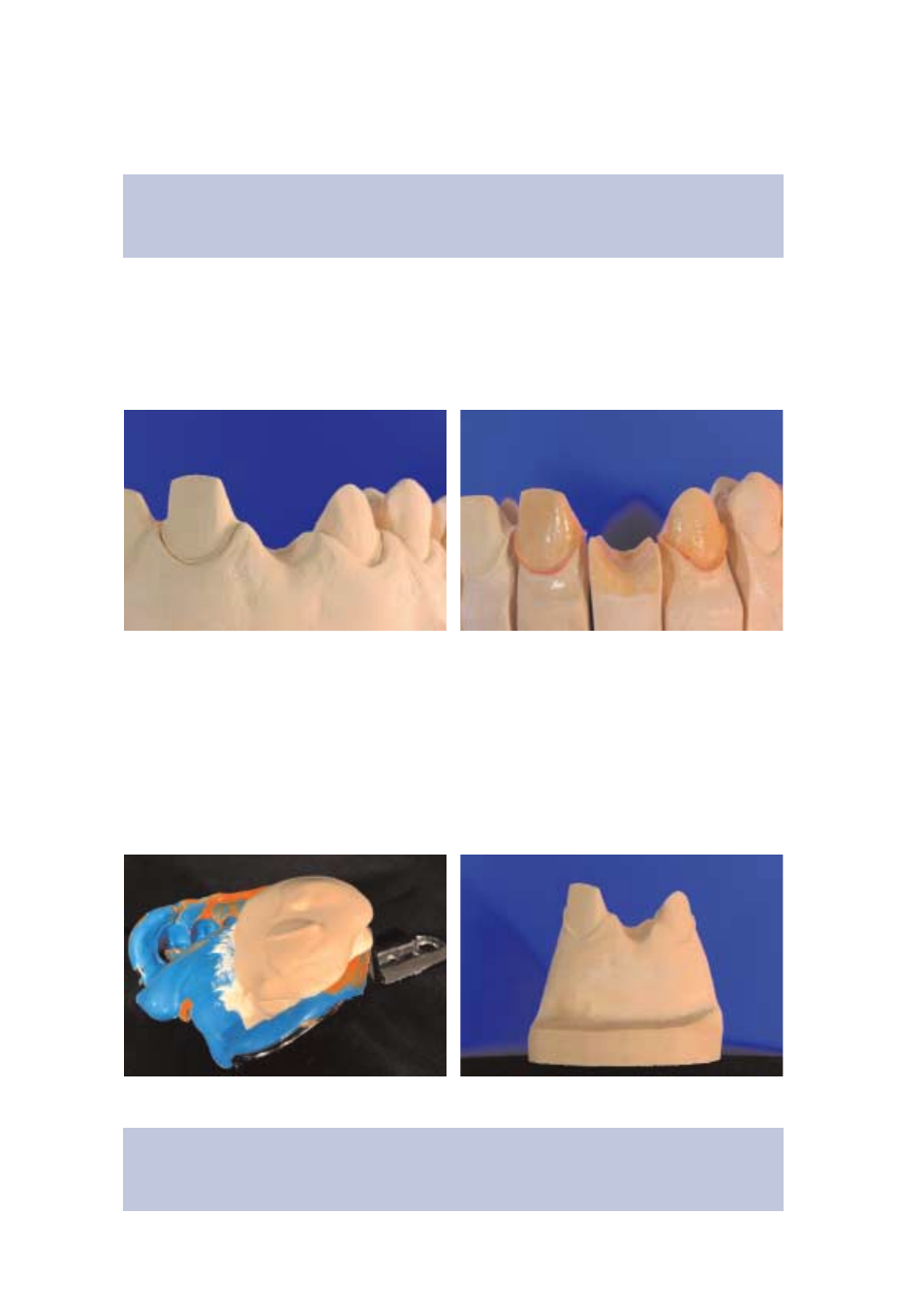Ivoclar Vivadent Vectris User Manual
Page 38

38
3 -
U N I T A N T E R I O R B R I D G E S
Starting situation
Fabricate a master model or a model with detachable segments on the basis of the impression in the usual manner. Expose
and mark the preparation margin. It is advisable to apply a sealer to harden the surface and to protect the stone die from
abrasion. The application of the sealer must not cause any changes in the dimension of the stone die. Subsequently, a
spacer can be applied, if this is the customary method of working.
Fabricate a model with detachable segments and apply a sealer.
Fabricating the duplicate model for the vacuum-forming process
Bridge constructions for the anterior region in particular often involve sharply pointed incisal edges. As these edges are
prone to delamination during the vacuum-forming process, a duplicate model has to be prepared. The master model is
utilized to contour the pontic (including the pontic/abutment contact layer), to check the fit of the restoration and to
veneer the framework. Pour the original impression a second time and create a small duplicate model for the vacuum-
forming process. Make sure to eliminate undercut areas to facilitate the subsequent application of the Transil matrix.
Fabricate a duplicate model from the original impression and eliminate undercut areas.
– A silicone, polyether or similar material should be used for impression taking as these materials provide an
optimum reproduction of detail. Additionally, the impressions taken with these materials can be poured
several times.
– Hydrocolloid and alginate materials are unsuitable and, besides, cannot be poured more than once.
The following pages provide instructions on how to fabricate the framework of a 3-unit Vectris bridge (full crown bridge)
for the anterior region. For posterior bridges, the Vectris material is placed in the Transil matrix in a similar technique as for
3-unit inlay-retained bridges. Further information that is relevant to the fabrication of posterior bridges can be found on
page 20 onwards.
